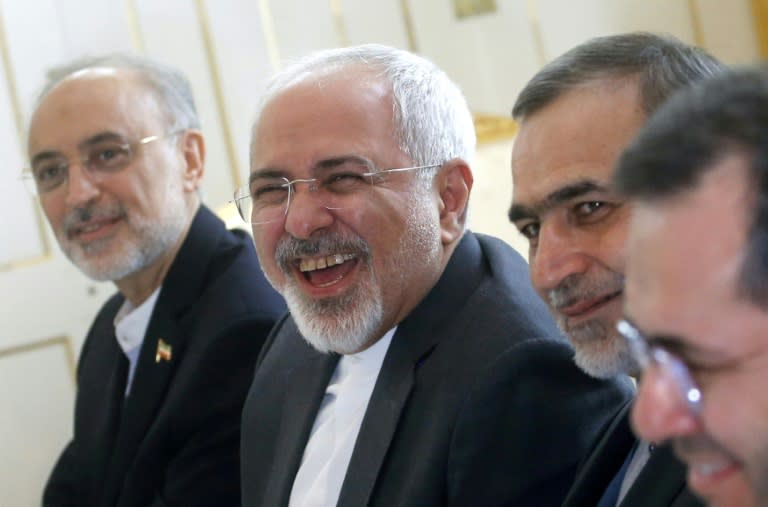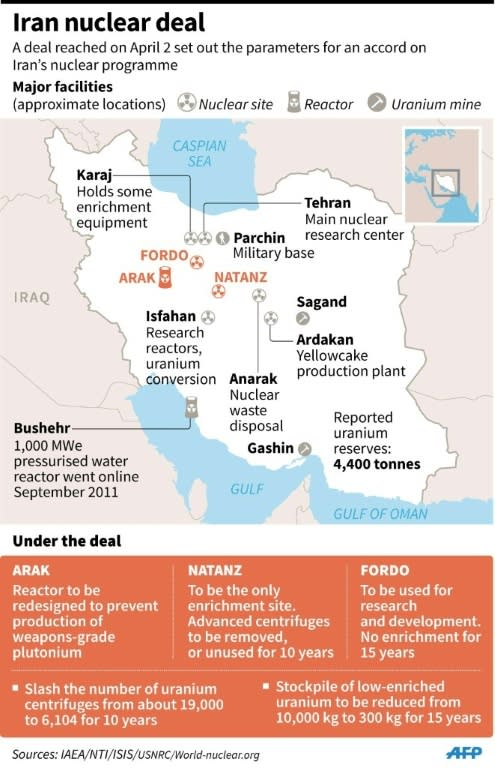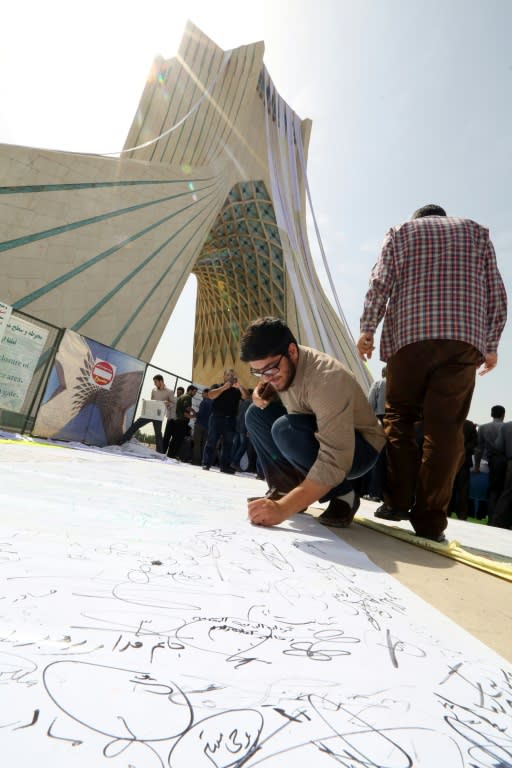Iran's Zarif back at nuclear talks, seeking 'final deal'
Iran's foreign minister kept his cards close to his chest Tuesday as he met with US top diplomat John Kerry for the next stage of marathon nuclear talks, while saying a final deal was possible. As Iranian minister Mohammad Javad Zarif returned from consultations in Tehran, a deadline of midnight (2200 GMT) for an accord ending a dangerous 13-year standoff over Iran's nuclear ambitions was widely expected to be extended, but only by a few more days. In what may be a positive sign, Russian Foreign Minister Sergei Lavrov also arrived in Vienna to meet Kerry and Zarif, with German counterpart Frank-Walter Steinmeier due to return to the Austrian capital later in the day, sources said. After huddling alone with Kerry one-on-one for almost two hours, Iranian Foreign Minister Mohammad Javad Zarif said: "I am here to get a final deal and I think we can." The two men were then joined by their teams for a broader meeting, with nuclear experts US Energy Secretary Ernest Moniz and Iran's Ali Akbar Salehi, who played a key role in brokering the outlines of a breakthrough accord in April in Lausanne, also around the table. "The only agreement that the Iranian nation will accept is a just and balanced one (respecting) the national greatness and the rights of the Iranian people," Zarif told Iranian media as he arrived back from a whirlwind one-day trip back to Tehran. "All the officials have said they are ready for... a fair and rational trade-off," Zarif said. Zarif's return to Tehran on Sunday night, after a weekend of intense negotiations with Kerry and other foreign ministers, had sparked speculation that he would return with clear guidance that would enable an accord to be sealed. Supreme leader Ayatollah Ali Khamenei appeared to give Zarif his blessing, tweeting in English Tuesday: "I recognise our negotiators as trustworthy, committed, brave and faithful." Under the Lausanne framework, Iran agreed to substantially scale down its nuclear activities in order to make any attempt to develop nuclear weapons -- an aim denied by Tehran -- virtually impossible. In return, painful sanctions that have suffocated the Iranian economy by choking its lifeblood oil exports and its ability to earn foreign currency will be progressively lifted. - 'It sounds easy' - But turning the 505-word joint statement drawn up in a Swiss lakeside hotel into a fully-fledged, highly technical document of several dozen pages and around five annexes, has proved hard work. A US official warned Monday "there are real and tough issues that remain which have to be resolved". Key sticking points include the pace and timing of sanctions relief, the mechanism for their "snapback" and Iran's future development of newer, faster centrifuges. Another thorny topic is the role of the International Atomic Energy Agency (IAEA) watchdog, whose chief Yukiya Amano met Kerry on Monday and who has been closely involved in the talks this week. Under the mooted deal, it will be up to the IAEA, which already keeps close tabs on Iran's declared nuclear sites with between four and 10 inspectors on the ground on any given day, to verify that Iran really does reduce its capacities. But the P5+1 powers -- the United States, Britain, China, France, Russia and Germany -- also want the IAEA to have wider inspection rights to verify any suspicious activity that might indicate work in secret on a nuclear bomb. This could include the IAEA visiting military bases, something that Iran's supreme leader Ayatollah Ali Khamenei last week rejected as a "red line". A probe into allegations of such activity, before 2003 and possibly since, is stalled but clearing up these claims is a key condition of the six powers for a deal. "It is important to get all the details right so that there are no ambiguities or weaknesses that can be exploited by critics of an agreement on both sides," said Arms Control Association expert Kelsey Davenport. "This is an historic moment -- both sides have come too far to walk away without a good deal," she told AFP.

 Yahoo Finance
Yahoo Finance 


